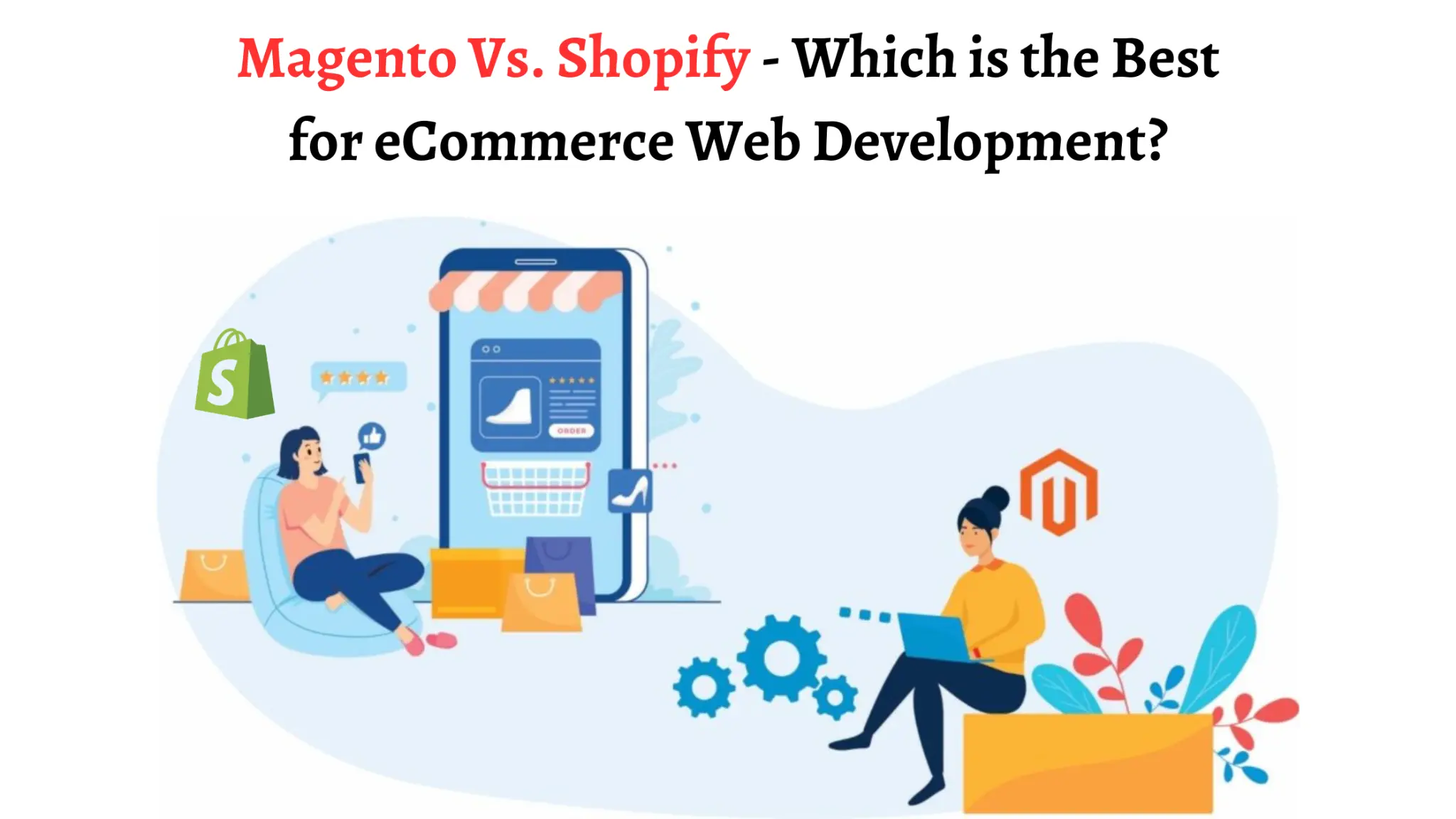As Magento vs. Shopify: Which eCommerce Platform is Best for Your Business? takes center stage, this opening passage beckons readers with a comprehensive look at two major eCommerce platforms, Magento and Shopify. The significance of selecting the right platform for your business is crucial in today's digital landscape.
Factors like business needs, scalability, and ease of use play a vital role in making this decision.

Introduction
Magento and Shopify are two popular eCommerce platforms that businesses use to set up online stores. Choosing the right eCommerce platform is crucial for the success of your online business. Factors like business needs, scalability, and ease of use play a significant role in determining which platform is best suited for your business.
Magento: Overview
Magento is an open-source eCommerce platform that offers a high level of customization and flexibility. It is best suited for large businesses with complex requirements and a need for extensive customization options. Magento is known for its scalability and robust features, making it a popular choice for businesses looking to build a highly customized online store.
Shopify: Overview
Shopify, on the other hand, is a user-friendly eCommerce platform that is easy to set up and use. It is a hosted solution, which means that Shopify takes care of hosting and technical aspects for you. Shopify is ideal for small to medium-sized businesses that want a simple and intuitive platform to start selling online quickly.
Significance of Choosing the Right eCommerce Platform
Choosing the right eCommerce platform can have a significant impact on the success of your online business. The platform you choose will affect your website's performance, user experience, and overall functionality. It is important to consider factors like your business needs, budget, scalability, and ease of use when deciding between Magento and Shopify.
Features and Customization
When it comes to choosing an eCommerce platform for your business, the level of customization and unique features offered can greatly impact your online store's success. Let's compare the customization options available on Magento and Shopify and discuss the key features unique to each platform.
Customization Options
- Magento: Known for its high level of customization options, Magento allows users to tailor their online store to meet specific business needs. Users can access and modify the platform's code, making it ideal for businesses with complex requirements.
- Shopify: While Shopify may not offer the same level of customization as Magento in terms of code access, it provides users with a user-friendly interface and a wide range of customizable themes and apps. This makes it easier for beginners to create a professional-looking online store without extensive technical knowledge.
Key Features
- Magento: Some key features unique to Magento include advanced product management, flexible pricing options, multi-store capabilities, and robust tools. These features make Magento a popular choice for larger enterprises looking for a scalable solution.
- Shopify: Shopify stands out with features like built-in payment processing, abandoned cart recovery, gift cards, and a mobile-friendly design. These features are designed to enhance the user experience and streamline the online shopping process.
Impact on User Experience
- Customization plays a crucial role in shaping the user experience on an eCommerce platform. For example, a well-designed and customized online store on Magento can provide a seamless shopping experience for customers, leading to increased sales and customer satisfaction.
- On the other hand, Shopify's user-friendly interface and customizable themes can help businesses create visually appealing and easy-to-navigate online stores. This can result in higher conversion rates and improved customer retention.
Pricing and Costs
When it comes to choosing an eCommerce platform for your business, understanding the pricing and costs associated with each option is crucial. In this section, we will break down the pricing structures of Magento and Shopify, explain any hidden costs or additional fees, and discuss how pricing can influence budgeting for your eCommerce business.
Magento Pricing
Magento offers two main versions: Magento Open Source (formerly known as Community Edition) and Magento Commerce (formerly known as Enterprise Edition).
- Magento Open Source is free to download and use, but you will need to pay for hosting, security, and other essential add-ons.
- Magento Commerce, on the other hand, is a paid version with pricing based on your business's revenue. The cost can range from thousands to tens of thousands of dollars per year.
Shopify Pricing
Shopify, on the other hand, offers three main pricing plans: Basic Shopify, Shopify, and Advanced Shopify.
- Basic Shopify starts at $29 per month, Shopify at $79 per month, and Advanced Shopify at $299 per month.
- In addition to the monthly subscription fee, Shopify also charges transaction fees for each sale made through the platform. The fees vary depending on the pricing plan you choose.
Hidden Costs and Additional Fees
Both Magento and Shopify may come with additional costs that are not immediately apparent.
- Magento may require you to hire developers for customization, maintenance, and ongoing support, which can add up to significant costs over time.
- Shopify's transaction fees can eat into your profits, especially if you have a high volume of sales. Additionally, customizing your Shopify store with premium themes or apps can also incur extra costs.
Influence on Budgeting
Understanding the pricing structures and potential hidden costs of Magento and Shopify is essential for budgeting your eCommerce business effectively.
Pricing can significantly impact your bottom line, so it's important to consider not just the upfront costs but also the long-term expenses associated with each platform.
Integrations and Apps
When it comes to choosing an eCommerce platform, the availability of integrations and apps can play a crucial role in enhancing the functionality of your online store. Integrations allow you to connect your eCommerce platform with third-party services and tools, enabling you to streamline your business operations and provide a better shopping experience for your customers.
Magento Integrations
Magento offers a wide range of integrations and extensions through its Magento Marketplace. You can find integrations for various functionalities such as payment gateways, shipping carriers, marketing tools, and customer service solutions. Some popular integrations for Magento include:
- Payment gateways like PayPal, Stripe, and Authorize.Net
- Shipping carriers like UPS, FedEx, and DHL
- Marketing tools like MailChimp, HubSpot, and Google Analytics
- Customer service solutions like Zendesk, LiveChat, and HelpScout
Shopify Apps
Shopify also offers a wide range of apps through its Shopify App Store. These apps allow you to add new features and functionalities to your online store without the need for custom development. Some popular apps for Shopify include:
- Oberlo for dropshipping
- Privy for email marketing
- Yotpo for customer reviews
- ReConvert for post-purchase upsells
Integrations and apps play a vital role in optimizing your eCommerce store and enhancing the overall shopping experience for your customers. By leveraging the right integrations, you can automate tasks, improve efficiency, and grow your online business successfully
.
and Marketing Capabilities
In the world of eCommerce, having strong and marketing capabilities is crucial for driving traffic to your site and ultimately increasing sales. Let's compare the tools and marketing capabilities of Magento and Shopify to see which platform can help you maximize your online visibility and reach.
Magento and Marketing Capabilities
Magento offers robust features that allow you to optimize your online store for search engines. With Magento, you can customize meta tags, URLs, and alt tags for images, as well as create -friendly URLs. Additionally, Magento provides tools for generating sitemaps and managing redirects, helping improve your site's overall search engine ranking.Some successful marketing strategies on Magento include leveraging email marketing campaigns, creating targeted promotions and discounts, and implementing user-generated content to drive engagement and conversions.
Shopify and Marketing Capabilities
Shopify also offers a range of tools to help improve your site's visibility on search engines. With Shopify, you can customize meta tags, titles, and URLs for each page, as well as optimize product descriptions and images for search.
Shopify also provides built-in tools for creating blog posts, which can further boost your site's .Successful marketing strategies on Shopify include harnessing the power of social media marketing, running targeted advertising campaigns, and utilizing influencer partnerships to reach a wider audience and drive sales.Overall, both Magento and Shopify offer robust tools and marketing capabilities to help you optimize your online store and attract more customers.
By leveraging these tools effectively, you can significantly improve your site's visibility, drive traffic, and ultimately increase sales.
Customer Support and Community
When it comes to running an eCommerce business, having reliable customer support and a strong community can make a significant difference in the success of your online store. Let's take a closer look at the customer support options provided by Magento and Shopify, as well as the importance of a supportive community for troubleshooting and knowledge sharing.
Customer Support Options
- Magento: Magento offers various support options, including a knowledge base, community forums, and a ticket system for technical support. They also provide premium support plans for those who require additional assistance.
- Shopify: Shopify offers 24/7 customer support through live chat, email, and phone. They also have a robust help center with articles and tutorials to guide users through common issues.
Importance of a Strong Community
- A strong community can provide valuable insights, tips, and solutions to common problems that users may encounter while using the platform.
- Being part of a community allows users to connect with other merchants, developers, and experts who can offer support and guidance when needed.
Experiences and Testimonials
- Magento: Some users have reported that Magento's community forums are a great resource for finding solutions to technical issues and getting advice from experienced users.
- Shopify: Many users praise Shopify's customer support for being responsive, knowledgeable, and helpful in resolving issues quickly.
Scalability and Performance
When it comes to choosing an eCommerce platform, scalability and performance are crucial factors to consider. Let's take a closer look at how Magento and Shopify stack up in terms of handling increased traffic and optimizing performance for better user experience.
Magento
Magento is known for its scalability and robust performance capabilities. It is a highly flexible platform that can be customized to meet the specific needs of any business, regardless of size. With Magento, you have the option to host your store on-premises or in the cloud, giving you more control over your hosting environment.
- Magento's architecture is designed to handle large catalogs and high traffic volumes, making it a great choice for fast-growing businesses.
- It offers advanced caching mechanisms and database optimizations to ensure smooth performance even during peak traffic periods.
- Magento also provides tools for performance monitoring and optimization, allowing you to identify and address any bottlenecks that may impact your site's speed and responsiveness.
Shopify
Shopify is a cloud-based platform that is known for its ease of use and simplicity. While Shopify may not offer the same level of customization as Magento, it excels in providing a reliable and stable infrastructure for businesses of all sizes.
- Shopify's servers are optimized for speed and performance, ensuring fast page load times and a seamless shopping experience for customers.
- It automatically scales to handle increased traffic and sales, so you don't have to worry about downtime or performance issues during peak periods.
- Shopify also offers built-in CDN (Content Delivery Network) support to further enhance the speed and performance of your online store.
Security and Compliance
When it comes to running an eCommerce business, ensuring the security and compliance of your online store is of utmost importance. Both Magento and Shopify offer various security measures and compliance standards to help protect your store and customer data.
Security Measures and Compliance Standards
- Magento: Magento is known for its robust security features, including secure payment gateways, data encryption, and regular security updates to protect against vulnerabilities. It also complies with PCI DSS (Payment Card Industry Data Security Standard) to ensure secure online transactions.
- Shopify: Shopify also prioritizes security by providing SSL encryption, fraud analysis tools, and regular security updates. It is also Level 1 PCI DSS compliant, offering a secure environment for processing online payments.
Importance of Data Protection and Secure Transactions
- Protecting customer data is crucial for building trust and credibility with your audience. Secure transactions not only safeguard sensitive information but also prevent data breaches and fraud, ultimately preserving your brand reputation.
- Compliance with industry standards such as PCI DSS is essential for meeting legal requirements and ensuring that your eCommerce store is operating within the boundaries of data protection laws.
Best Practices for Maintaining a Secure Online Store
- Regularly update your eCommerce platform and plugins to patch security vulnerabilities and stay protected against cyber threats.
- Implement strong password policies, two-factor authentication, and secure hosting to prevent unauthorized access to your store's backend.
- Use SSL certificates to encrypt data transmitted between your website and customers, ensuring secure communication and transactions.
- Educate your team members on cybersecurity best practices and conduct regular security audits to identify and address any potential risks or gaps in your security measures.
End of Discussion
In conclusion, the discussion around Magento vs. Shopify: Which eCommerce Platform is Best for Your Business sheds light on the key considerations businesses should keep in mind. From features and customization to pricing, integrations, , customer support, scalability, performance, security, and compliance, the right platform can make a significant difference in the success of an online business.
Frequently Asked Questions
What factors should I consider when choosing between Magento and Shopify?
Consider factors like your business needs, scalability requirements, ease of use, and customization options available on each platform.
Are there any hidden costs associated with Magento or Shopify?
Both platforms have different pricing structures, and it's essential to consider any additional fees or costs for specific features or services.
How important is for an eCommerce business on Magento or Shopify?
plays a crucial role in driving traffic and increasing sales for online stores. Both platforms offer tools and capabilities to enhance performance.
What kind of customer support can I expect from Magento and Shopify?
Magento and Shopify provide different levels of customer support, ranging from basic to advanced options. A strong community can also be beneficial for issue resolution and knowledge sharing.
How do Magento and Shopify handle scalability and performance?
Both platforms have mechanisms in place to handle increased traffic and growth. Optimizing performance is key to providing users with a seamless experience.
What security measures are in place for Magento and Shopify?
Security and compliance are paramount for eCommerce businesses. Both platforms offer features to protect data and ensure secure transactions for customers.










